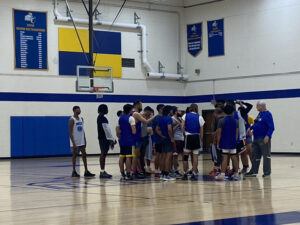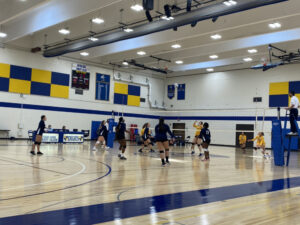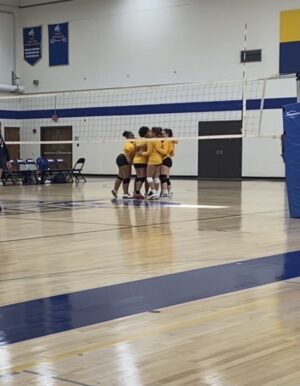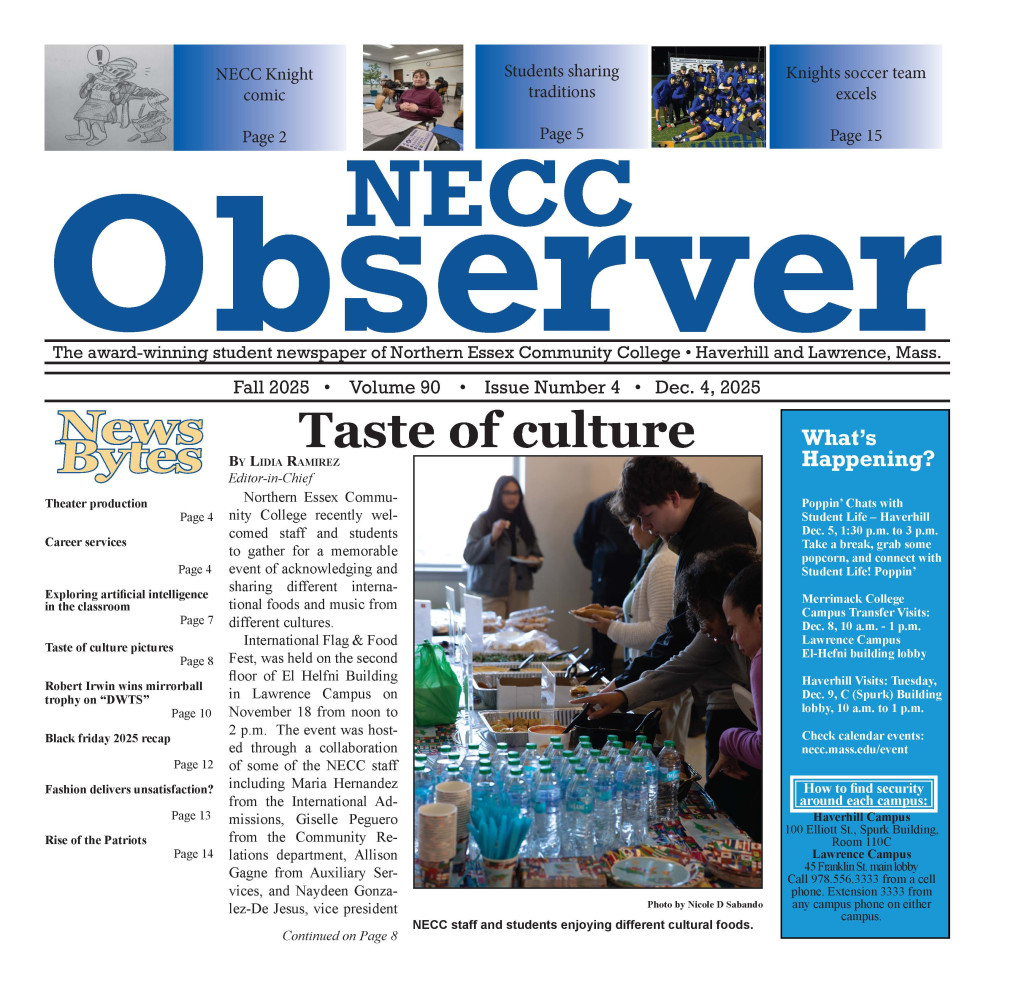NECC Knights Basketball head coach is Darren Stratton with 12 games left before the season starts. Stratton graduated from NECC in 1996. He played from 1994-1996 and was head coach from 1999-2015. During his first chapter as coach he won more than 200 games, including advancing to Region 21 championship games in 2003 and 2009, according to neeccknights.com
He returned back in 2020-2021 for his second turn around as coach.
The basketball team was practicing Oct. 22 in the Sport and Fitness Center in Haverhill campus.
Coach Stratton told me that they only have three returners from last year.

“We have five international kids in our team this year and a kid from Florida so we have two kids from Turkey, three from Canada and one from Florida so we recruit all over anyone that’s willing to come to Northern Essex that can compete and basically we are trying to involve Northern Essex not only as community college but hopefully to grow as a regional and national power … so we expect a lot from this basketball team basically.”
Christian Kinsley of Lawrence is one of the three captains of the NECC Knights. In high school he played two years of football and a year in track and played 4 years of basketball in high school. Last season he played five games averaging nine points per game 34% in the field goal , 22.2 % on the three point line, 100.0 % on the free throw line averaging 3.8 rebound per game and 1.6 assist per game, according neccknights.com. He mentions to me how is he preparing. “This year I tried to get my shot up before practice and after practice I tried to stretch and rest and get ready for tomorrow,” he said.
He said he goes in to the court early before practice starts.
Cameron Stratton of Lawrence is one of the three captains of the NECC Knights. Last season he played five games averaging 2.4 points per game 30.8 field goal, 37.5 % three-point, in the field throw line 33.3 %, averaging 2.4 rebound per game and 2.4 assist per game according neccknights.com We all know that being an athlete and keeping track on your school work is not not easy.
“Thankfully for academic coaching I go to academic coaching they keep me on track and basically I just get all of my work done through there,” said Cameron Stratton.
Daniel Almarante of Lawrence is one of the three captains of the NECC Knights. Last season he played five games averaging 7.4 points per game, 57.1 % field goal, 50.0 % in the three-point line, 25.0 % in the free throw line, averaging 4.4 rebound per game and 1.6 assist per game according to neccknights.com He has been playing basketball since he was five. He mentioned to me “In high school I didn’t played basketball I did football and wrestling then I came to NECC to play basketball.” Taking a break from a sport that someone likes can be good to explore new sports to see if the person is interested and they like it. Almarante mentioned that in high school he used to do wrestling and probably he did it because he wants to learn how to defend himself from a situation and self-defense.



